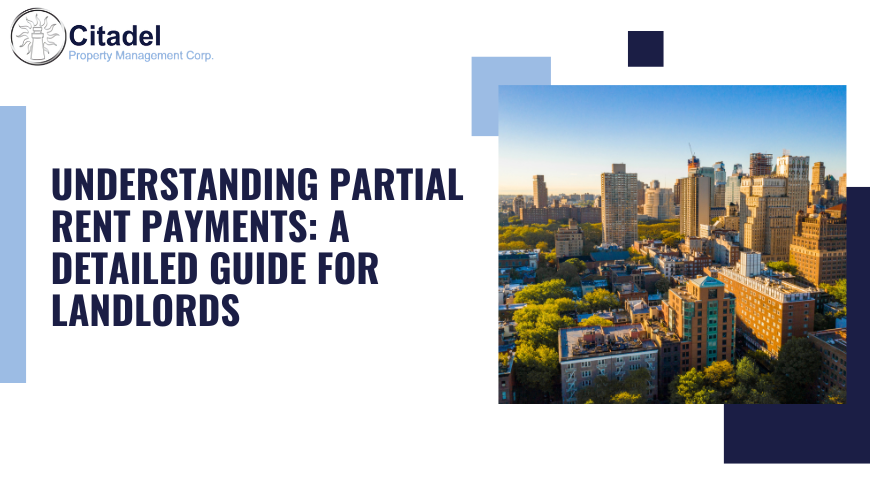As a landlord, ensuring timely and complete rent payments is crucial for financial stability and maintaining a positive cash flow. However, situations may arise where tenants encounter financial difficulties and request a partial rent payment. Navigating these situations requires understanding your rights, responsibilities, and strategies to manage partial payments effectively.
Understanding Partial Rent Payments: A Guide for Landlords
Understanding the Reasons for Partial Rent:
While partial rent payments are never ideal, several factors can contribute to a tenant’s inability to pay the full amount:
- Financial hardship: Unexpected events like job loss, illness, or family emergencies can temporarily impact a tenant’s financial ability to fulfill their rent obligation.
- Miscalculation of funds: Occasionally, tenants might miscalculate their budget or encounter unexpected expenses, leading to a shortfall in their rent payments.
- Communication issues: Lack of clear communication between landlords and tenants can lead to misunderstandings regarding due dates or payment methods, resulting in partial payments.
Legal Considerations for Landlords:
It’s essential to be familiar with the legal landscape surrounding partial rent payments in your specific jurisdiction. Here are some key points to consider:
- Lease agreement: The lease agreement typically outlines the consequences of late or partial rent payments. Review the specific clauses regarding late fees, grace periods, and potential eviction procedures.
- Local and state laws: Local and state laws might regulate how landlords can handle partial rent payments. These regulations can dictate limitations on late fees, notice periods for eviction, and acceptance of partial payments without waiving the right to collect the remaining balance.
Responding to a Tenant Requesting Partial Payment:
When a tenant approaches you regarding a partial rent payment, it’s crucial to respond professionally and collaboratively.
- Open communication: Encourage open communication with your tenant. Listen to their explanation for the situation and show empathy while maintaining your professional demeanor.
- Gather information: Understand the reason behind the partial payment and assess the tenant’s financial situation. This can help you determine the best course of action.
- Review the lease agreement: Refer to the lease agreement regarding late fees and any stipulations regarding partial payments.
Strategies for Addressing Partial Rent Payments:
Once you have a clear understanding of the situation, consider these strategies:
- Negotiate a payment plan: Work with your tenant to create a realistic and mutually agreeable payment plan for settling the remaining balance. This can involve dividing the remaining amount into installments with clear deadlines.
- Explore alternative solutions: Depending on the situation, you might consider exploring alternative solutions, such as offering a temporary rent reduction in exchange for completing specific maintenance tasks or agreeing to a shorter lease term in the future.
- Seek legal advice: If the tenant is consistently late with rent payments or the situation becomes contentious, seeking legal advice from a lawyer specializing in landlords-tenants law can help protect your rights and ensure you follow proper legal procedures.
Additional Considerations for Landlords:
- Document everything: Maintain clear documentation of all communication with your tenant regarding partial rent payments, including emails, phone logs, and written agreements.
- Protect your future income: Consider requiring additional security deposits or co-signers on future leases, especially if the tenant has a history of late or partial payments.
- Be proactive in managing your finances: Maintain a buffer in your emergency fund to mitigate the impact of missed or partial rent payments.
FAQs:
Q: Am I obligated to accept a partial rent payment from my tenant?
A: In most jurisdictions, landlords are not legally obligated to accept partial rent payments. However, doing so might be a pragmatic solution in certain situations, depending on your willingness to work with the tenant and your understanding of the situation.
Q: What happens if I accept a partial rent payment and the tenant doesn’t pay the remaining balance?
A: Accepting a partial payment typically doesn’t waive your right to collect the remaining balance. You can still pursue legal action to evict the tenant if they fail to fulfill their full rent obligation as stipulated in the lease agreement.
Q: Can I charge late fees on a partial rent payment?
A: This depends on your local and state laws, as well as the terms outlined in your lease agreement. While most jurisdictions allow charging late fees on late payments, some might have specific regulations regarding their application to partial payments.
Remember: When dealing with partial rent payments, communication, understanding, and adherence to legal guidelines are crucial. By adopting a professional and solution-oriented approach, you can navigate these situations effectively while protecting your rights and maintaining a healthy working relationship with your tenants.




